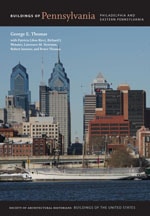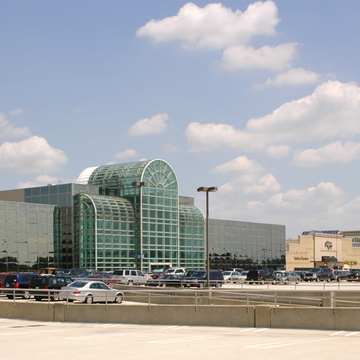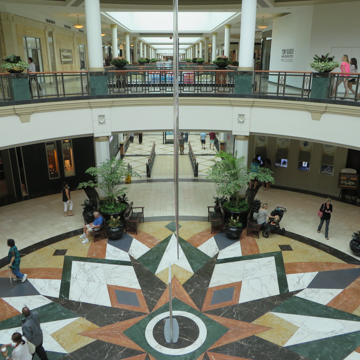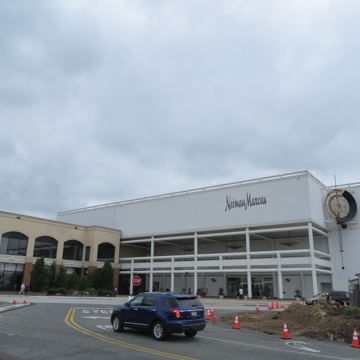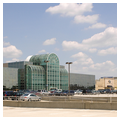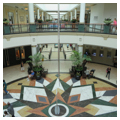From the site of an eighteenth-century inn whose sign gave the region its name, the township has been transformed into metropolitan Philadelphia's chief consumption node of the automobile age. The intersection of U.S. 202 from the southwest and West Chester, the 1950s Schuylkill Expressway (I-76) that drew Philadelphia and the Main Line, and the 1930s Pennsylvania Turnpike (I-276) led to the location of the immense King of Prussia Mall. From its beginning as an E. J. Korvette's store with a parking lot to its present state, it is now the nation's largest purely retail shopping center with eight department stores and approximately four hundred specialty stores attracting nearly thirty million visitors a year. The 1980s extension called The Courts was designed by Thompson Ventulett Stainback and Associates of Atlanta, who drew on such accessible images as London's Crystal Palace and Italian gallerias of a century and a half before. The mall's scale attests to the role of the car—and the perceived failures of Philadelphia's retail climate.
You are here
King of Prussia Mall and The Courts at King of Prussia
If SAH Archipedia has been useful to you, please consider supporting it.
SAH Archipedia tells the story of the United States through its buildings, landscapes, and cities. This freely available resource empowers the public with authoritative knowledge that deepens their understanding and appreciation of the built environment. But the Society of Architectural Historians, which created SAH Archipedia with University of Virginia Press, needs your support to maintain the high-caliber research, writing, photography, cartography, editing, design, and programming that make SAH Archipedia a trusted online resource available to all who value the history of place, heritage tourism, and learning.














